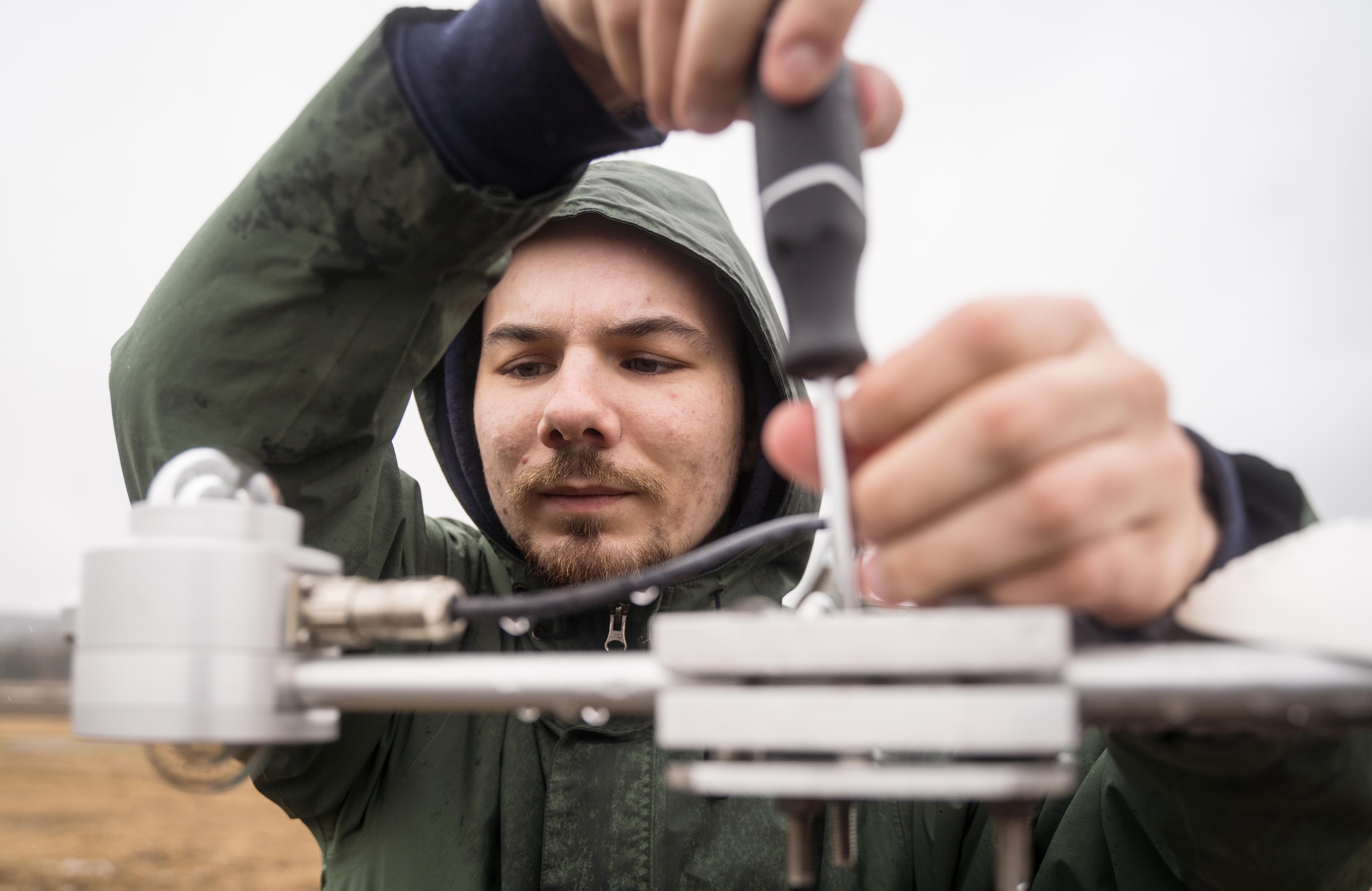Shining a light on Alaska household solar installation motives

Cole Sudkamp-Walker levels a weather instrument during one of his weekly trips to the solar test site, located on the UAF campus.
What are the factors that drive people to buy solar panel installations? Are people with solar panels more likely to buy an electric car or install other energy-efficiency and energy-saving technologies? These are the questions that University of Alaska Fairbanks senior mechanical engineering student and Alaska Center for Energy and Power intern Cole Sudkamp-Walker is investigating.
Under the mentorship of ACEP research engineer Chris Pike, Sudkamp-Walker is working on the development and deployment of a survey for Southcentral Alaskans who participated in the Solarize Anchorage program, coordinated by the Alaska Center. He has been creating the survey using Qualtrics, a web-based survey tool specifically used to conduct survey research.
Sudkamp-Walker comes to his internship as no stranger to solar panels. During the summer of 2019, he worked as a solar panel installer in Fairbanks. This real-world experience set up Sudkamp-Walker with valuable insight into identifying the key questions that need to be answered to bring data-driven and informed results to the project.
“As a solar installer, we often heard from our boss that most people bought panels because a friend or neighbor installed panels,” said Sudkamp-Walker. “People like to talk about them and, once they hear the benefits from someone they trust, that can be the tipping point in someone’s decision to get panels installed. It will be interesting to see how accurate this anecdotal observation is and if there are other factors at play.”
In addition to his many roles, Sudkamp-Walker has also been providing weekly maintenance to ACEP’s Solar Photovoltaic Test Site located at UAF’s Fairbanks Experiment Farm. Sudkamp-Walker performs weekly maintenance on sensors, data cables and inverters, cleans solar panels to ensure that data is collected accurately, and documents qualitative observations.
Sudkamp-Walker has also been taking the collected data and learning how to process it using the Python coding language.
Sudkamp-Walker said he is interested in pursuing a career in renewable energy and hopes to gain more experience in the renewable energy field by continuing to develop additional skills while making connections with professionals.
“I’m grateful for the funding that made this internship possible and to the storyteller team for sharing our intern experience,” said Sudkamp-Walker.
For more information on this project, please contact Chris Pike.
The ACEP Undergraduate Student Intern program is generously funded by a grant from the Office of Naval Research.
For more information on the AUSI program and the various projects, please contact Jeff Fisher and visit the program website.


